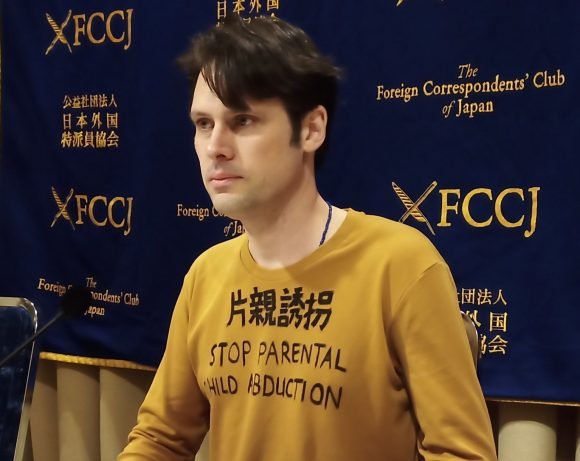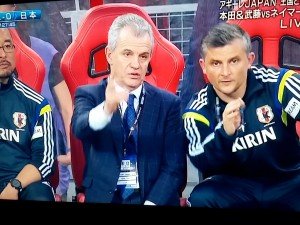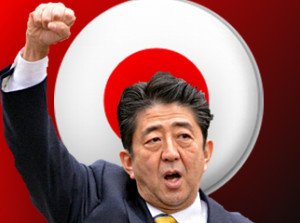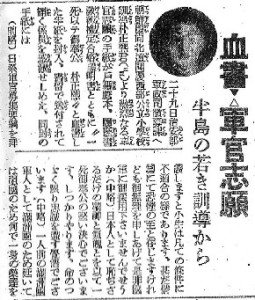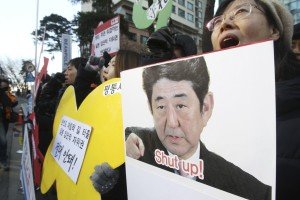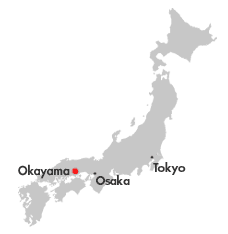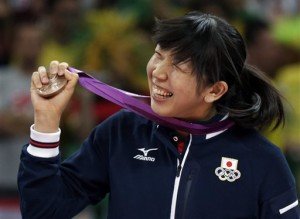HoLEP prostate surgery; a patient’s view
This is just a personal record that I hope might help some people considering HoLEP. No two operations are the same, so everyone’s experience is different. Mine is probably very different as I’m a Brit living in Japan. At the time of my operation, I was 69. My symptoms weren’t critical but they were obviously headed in the wrong direction…
Day 1 (Monday): Check in at 10:30, get to my room at 11. Nothing much to do all day. Nurse came to check my temperature, blood pressure and blood oxygen levels three times as well as taking two blood samples. The surgical nurse appears and explains what will happen and later I’m taken downstairs to a room where the anesthesiologist explains her procedure and checks that I don’t have any allergies. She says she’ll knock me out with ketamine and keep me knocked out with gas, although I was under the impression that the sedative would be intravenous only and oxygen would be administered through a tube down my throat. Anyway, they shoved something down my throat because I had a sore throat afterward. They gave me lunch and dinner and told me I should take a shower at 4 p.m. Lights out was at 9 p.m.
Day 2: Lights on was at 6 p.m. No breakfast, of course, and they gave me some special water to clean my system out. Surgery was scheduled for 11:30 and the wife and daughter came at 10:30, at which time I also had to don anti-blood-clot socks. And we waited. Until 1 p.m. when we were walked to the operating theater in my pajamas. Inside, the very cute nurse told me to take my top off and lie down on the operating table. They hooked me up to various monitoring systems and stuck a needle near my left wrist. As I took one last look at the cute nurse, the anesthesiologist said, “I’m putting in the ketamine.” I looked at the ceiling and then, suddenly, I was still looking at the ceiling. “Do you feel the world going wobbly,” they asked. Maybe a little bit. They thought I was a bit slow, so they asked me again and this time the world was getting a bit blurry.
And then they were telling to wake up as the operation was over. I felt nothing. I asked them what the time was – 2:45 was the answer. Quick. They hauled me on to a bed and took me to a recovery room. Wife and daughter and doctor came in. They asked me if I was OK. I couldn’t answer. My throat was dry and wouldn’t work. I really wanted to ask how it had gone. One of my chief worries was that they wouldn’t have been able to do it for some reason. The doctor held up a tube of pinkish matter and said, “This is what I took out.” It didn’t look very much but he said it was a quick, easy and smooth operation. I couldn’t tell, I could feel nothing. They took me back to my room, although I don’t remember that bit. Wife and daughter hung around for a bit and went home. The nurses said I could drink some water four hours later. And I had an annoying anti-clot massage machine running permanently on my calves. At some stage before the op, I thought I had been told that I would have to lie still and not move at all. That wasn’t the case, which was good because I needed to move in the uncomfortable hospital bed.
Day 3: Nurses monitored me through the night and it dawned on me that I had fluids going into my arm and a large tube going from my dick to a 2.5-liter plastic bag on the IV stand. The massager came off early in the morning, but other than that, no feeling. Suddenly, at 6 o’clock, I started feeling feverish. Nurse checked: 37.9. Had a fever most of the day, rising to 38. I was allowed to eat breakfast and told to drink a lot of water. They took some more blood before a nurse came along to show me how to walk with a bunch of IVs and a tube running out of my dick. And to steady me as I got up for the first time, which was good as I lost my balance immediately. I was still wearing the massive post-operation diaper and still had no feeling, so I had no idea what was happening down there. On the schedule, it said the nurses would clean my scrotum. Disappointingly, I was given a hot towel and told to do it myself. It was pretty shocking. Part of my dick just below the glans had swollen up massively and everything was very, very tender. My dick was glued to my pubic hair with blood, so Nurse A basically ripped my dick away. A nice girl, but has to work on her tenderness. (From long ago, I was under the impression that if you had surgery in that region, a nurse would shave all your hair off. That didn’t happen, but I did give it a little trim before I went in.) The surgical diaper was discarded and I was told to put on pants (boxer shorts) and pajamas with the tube from my dick sticking out the waistband. Not comfortable. My first night at the hospital, I had felt very cold, so the wife brought me a blanket, which made me very hot, but it seemed to have the effect of sweating out most of the fever as I slept for over eight hours straight.
Day 4: I was told to drink at least 2 liters of water a day, so I drank around 6, which meant my plastic bag was filling up with red fluid very fast. It was an unexciting day at the hospital. Wife and daughter visited again, bringing me All Bran as I was sure I’d need help to shit softly at some stage. But I wasn’t planning to have a shit while there were IVs in my arm and a tube up my dick. I really wanted to have control over my body again. The Doc came in early in the morning and said nothing. At 10 p.m., a nurse came in to take the IVs out of my arm, which was nice.
Day 5: D-Day (Dick Day). I was getting tired of having a tube in my dick and have enormous sympathy for those who need a catheter on a long-term or even permanent basis. The Doc came in and said it would be out soon. Had breakfast and Nurse A and Trainee Nurse B came to see me for something and then I realized it was their job to pull the tube out. I had pre-cleaned the area with a wet towel so that Nurse A wouldn’t have another opportunity to rip my dick away from my bloodied pubic hair. Nevertheless, further cleaning was done and Nurse B – a cute but very tentative nurse – was charged with pulling the catheter out, which she found difficult. Nurse A helped and yes, it was painful for a few seconds but then it was done. But my dick was badly swollen, red, raw and very sensitive. Nurse B gave me a pair of pants and my pajama bottoms to put on.
The main aftereffects of surgery are leakage and incontinence, which means urine coming out unannounced and no control over your urination. My dick was free, but it felt awful and it was hard to walk because it was so sensitive to the touch. I was told to drink water and report to the nurse if I had a piss. I had to record the amount (before and after the operation, you have to record your output every time). I wasn’t looking forward to my first post-catheter piss as most people had said it would be painful. But I still had very little feeling in the whole nether region. An hour later, I decided to chance it. I went to the toilet with my cup (paper measuring cup), intending to pee into the cup. I pulled my pants down, reach down for the cup on the waste bin to my right, turned and then realized I was already pissing already, mostly over the floor. I quickly put the cup in place to prevent a disaster and managed to get 180 ml into the cup, which was larger (by 10 ml) than any amount I had pissed before the operation. I called the nurse, she inspected my pee and told me she’d clean the toilet up.
I decided that the underpants and boxer shorts I had brought from home weren’t suitable. I went to the store downstairs and bought a disposable adult diaper (177 yen, just over a dollar). Halfway through lunch, an hour and a half since my first piss, I felt like I needed another one. This time I would be more careful and sit on the toilet. I pulled my pants and diaper down together and moved to get my cup into place, only just in time. I was off and running again without my knowledge. At one point, I decided to try and interrupt the flow, just to see if I had any control. It worked. There was only a little spillage onto the toilet seat but when I looked at the cup, it said 80 ml, which seemed way short. I looked at my diaper and realized it was soaking wet. I went to buy more diapers.
Nearly three hours later, I was ready for another piss. I didn’t have a strong urge to piss but just felt there was enough to make things happen. This one was better, most of it reaching the cup and producing 200 ml. The nurses seemed impressed. Following this, I was allowed my first shower since Monday. I really wanted and needed a shower but was still concerned. I went to the store to get some “friendly” soap but when I got back to my room, I read a translation that said, “Don’t use for cuts or wounds.” But it was child friendly and I avoided using it on the tip of my dick, so it was OK, and having a shower was a big relief. A couple of hours after the shower, it was Piss No. 4. Still didn’t have control over the start but managed to avoid a major mess and filled up the cup to 180 ml, but had to change my diaper. Before going to sleep, I produced another 170 ml in the cup but with a heavy diaper. The nurse said she wanted to weigh the diapers to see how much wee there was.
Day 6: Still unable to control the start of my pissing, my routine now was to take off my shoes, socks and pajamas when I got into the toilet, leaving me with just a diaper. When I removed the diaper I’d quickly put the cup in place and sit on the toilet, holding the cup as it filled up. The main purpose was to avoid making a mess. At 1:45, with the new guy opposite snoring like a Motorhead concert, I produced 170 ml with some going in the diaper.
Two big events followed a few hours later. At 6:20, I had a controlled wee of 230 ml with no mess AND my first shit since before the operation. And it was a smoothie, no pain, no strain. Four hours later, I peed again and hit the 300 ml mark, with no mess, although there could have been as I was holding the cup sitting on the toilet and it had collapsed slightly as I was holding it too tight. It’s only a 400 ml cup and it was reaching the top when I stopped peeing naturally.
I was consuming less water than before, so I thought my output would be less. I guess the operation opened up the pipes. When I had the catheter in, I consumed a lot – around 6 liters a day – as I didn’t have to piss. It just passed through me, hopefully cleaning out the crap in my system, and into the plastic bag. I didn’t want to put pressure on my urinary system by consuming too much water and the internet told me 3-4 litres a day was as much as I should consume post-operation. I also checked on what I shouldn’t consume and caffeine and soda were at the top of the list. Some herbal teas were OK and maybe decaf coffee and tea. I make a combination drink of green tea, ginger and a Chinese tea resembling Earl Grey at home, so I’ll aim to modify that to keep out most of the caffeine. Alcohol will be off the table for some time. After a visit from wife and daughter, who were obviously very keen to hear the full details of yesterday’s trauma (their day off from visiting), the rest of the day saw lesser outputs and continued false starts, but I did manage to add another crap. Thank you, All Bran, for another smooth ride.
Day 7: Time to go home. I’ve only been here since Monday (it’s now Sunday) and I feel institutionalized already. It is a bit like being in prison, although I’m sure prison beds are more comfortable. Before the op and after the catheter was removed, I’ve had to pee into a paper measuring cup and record how much I produce. After giving up my logbook, I can actually have a piss into the actual toilet, which feels weird, especially as I don’t piss on the floor again. Revelation: It’s much easier than pissing into a cup. But then I’m all packed up and ready to go, sorry to leave the wonderful nurses and slightly concerned about not having instant access to medical care should I need it.
I still haven’t decided if having prostate surgery is less scary than having the wife drive me home, but it’s probably healthier than me driving, although her heavy braking is uncomfortable. Of course, soon after getting home, it’s time for a piss and it’s important not to piss all over the floor of the new (white) toilet floor. Luckily, there’s a mat around the toilet although I do manage to overshoot that. Fortunately, my new carton of diapers (worryingly labeled “dispers”) gets in the way and the spray is somewhat limited. I think there was a bit too much pee anticipation coming from my brain.
I’m pleased to be reacquainted with my extensive cake and cookie collection but sad that tea and coffee are not recommended. I hit Amazon to order a bunch of herb teas (chamomile, cranberry), honey and decaf coffee. For refreshment, I make my usual evening tea, as described above, to accompany my post-dinner fruit cake. I’d slept very little the night before, so anticipated a good kip. Lights out at 10, but woke up at 1:30 for a pee, before sleeping until 5:30.
Day 8: Needed another pee when I woke up and have noticed that the pressure and amount seems less than when I was in hospital, possibly because I was drinking 5-6 liters of water a day in hospital. Also, the burning in the urethra is getting stronger. Still wearing diapers as a precaution but manage to avoid decorating the bathroom floor, although I had a minor slip-up in the evening when a few drops hit the toilet seat. The lower output and burning make me think that my urethra is closing up, but my head tells me I’ve only been catheter-free for a couple of days and full restoration is likely to take a couple of months at least. You heal a lot slower when you’re 69. I must say, I have been surprised that my pee is so clear. There is blood dripping into my diaper and I often see blood at the beginning and end of the stream, but my pee is quite clear and I suspect that drinking so much water post-op was a very good idea. But apparently the recommendation after catheter removal is to drink 2 liters of fluid a day, although I did see one post suggesting 3-4 liters was OK. It seems that you don’t want to overload the system but to drink enough to keep it functioning.
I take my car out for a quick shopping trip with my daughter and feel no pressure to pee while I’m out, which is good. I haven’t been wearing trousers, just tracksuit bottoms and my diaper. Think I need to avoid standing urinals. Despite having a good night’s sleep, I take two long and deep naps during the day, one in the morning and one in the afternoon. I’m a great believer in the restoration power of sleep, so that’s good, but the heavy naps (both about an hour) clearly show that my body is tired. This isn’t my first rodeo (I’ve had a number of surgeries, but none since my late 20s) and I know that your mind often thinks life is back to normal, but your body really isn’t. Think months, not weeks. I had a great shower before dinner and tried to normalize my dick, but it’s still badly swollen under the glans. It actually looks bigger but less swollen, if you get what I mean. Before it looked like a miniature swimming ring had been inflated around my dick, but now it looks more like a fleshy scarf.
Day 9: Weird sleep. Went to sleep at 10:50, had a very weird dream, woke up at 11:20. Felt like I needed a wee. Had a wee. Went back to sleep. Had another very weird dream and, strangely, slightly sexual dream. Woke up at 12:40 thinking: Don’t get a hard on. I’d read somewhere that you should think about sex for a month after the operation. But I’m a young guy … you know what I mean. But I’m trying. So, had another wee and went back to sleep until 6:30. I should point out that the reason I wasn’t too concerned about wanting to go to the toilet early in the night was because I’d failed to consume my 2 liters of water by bedtime, so drank a lot just before I slept. Not a good idea. In the hospital, I was just chugging back water with no consequences as the tube from my bladder to my plastic bag did all the hard work. But now I’m in charge of my dick again, I obviously have to manage things myself. I probably didn’t need to finish off the water as I’d drunk three cups of tea during the day and had milk on my breakfast cereal, so I’d probably consumed enough liquid. But I do think it’s wise to even out your liquid consumption over the day. I also read somewhere that you should restrict liquid intake after 6 p.m. to avoid having to get up at night. I have my post-dinner cup of gingery tea around 7 p.m. and usually might take a swig or two of water after that, but I’ll cut out the overcompensation from now on.
Worries: Of course, it’s natural to worry about everything. There’s no guarantee the operation will work. And there’s no guarantee that your immediate post-op condition will indicate how you will be three or six months down the road. I feel that my stream and output has declined sharply from my first days after the catheter was pulled, but surmise that the catheter had produced an expanded urethra that would produce an excessive flow in the short term. I must keep a record.
Urgency: While I was cleaning my teeth after breakfast, I had a slight need to take a pee. But I was cleaning my teeth and didn’t want to interrupt my task. But then I noticed that I wasn’t jumping up and down or holding my dick to stop me weeing as I ALWAYS would pre-op. I was able to finish cleaning my teeth calmly and half an hour later, I still haven’t had a pee, so that’s a good sign.
Burning Man: Burning when you pee seems to affect everybody so that doesn’t worry me too much. However, burning can also indicate an infection in the urethra, so it’s something to monitor. The very tip of my urethra is also itchy, which is annoying, but I suspect it’s because my foreskin is on vacation further down my dick and won’t return to normal until my spare tire has disappeared and it can come home. Urethritis can produce a creamy discharge (been there, done that; the perils of youth), so if you’re getting that, report to the doc immediately.
One thing that was nice when I got home was realizing I didn’t have to take any pills. My intake of pills consisted of tamsulosin in the morning and Viagra alternative tadalafil (also know as Cialis) in the evening, plus a vitamin D pill and three milk thistle pills unrelated to my prostate condition. So, not taking medication was a real bonus. To be honest, I was never quite sure how effective they were, although on the days when I forgot to take them, I did notice a slowing down of the system. But the system was exceedingly slow.
My first doctor after I’d switched from a big Tokyo hospital to a local one did loads of tests every time I saw him, which was every six months: PSA, urine, blood, flowtest, urine retention. I think he liked me being around because he was keen to practice his English, which was quite good. But the point is my flowrate just before he moved hospitals was around 6.5 ml/second, which, he said, was “quite slow.” But I was still functioning relatively normally at this time, so just carried on as normal. Around the time of my operation, I found out that a normal flowrate was around 13.5 ml/second and I had slowed down massively since my 6.5 ml days, so it was clear that I was at a fairly critical stage (I had had a couple of instances where I couldn’t pee). My second doctor at the local hospital only ever did PSA tests, which I thought was odd. But then I had a break of a year for various reasons and a third doctor was in place when I returned for another check and he immediately did the flowtest, but it was flawed as I wasn’t expecting it and had had a piss before I left for the hospital. I left that meeting suggesting that I come back in six months to see how things go. But within a matter of weeks, I realized that my life was being impacted too much by my need to wee and locate toilets on any journey I took. So I went back a few weeks later and agreed to the HoLEP operation.
Flow update: Day 9, 9 a.m. Finally, I needed a pee, so I decided to measure it as I had in hospital. I was under the impression that my volume and flowrate was down. I was wrong. Peeing in a cup gives you a way different impression of your peeing power. In anticipation of my pee, I slightly missed the cup but then I was in full flow, roaring out around 300 ml. Happy. Maybe there’s also a difference peeing standing up and sitting down. But I must point out that I still have very little feeling that I’m peeing, apart from the burning sensation. That said, I think I’m in control. Still wearing diapers and they’re just picking up a little bloody discharge from the urethra. Due to the state of my dick, walking is still an issue, but I managed to take the rubbish out for a 500-meter (yards) roundtrip. After being shut up for a week, just being outside is a thrill.
Food and Drink: Did a little research on the web and didn’t find very much. The most detailed info was on the website of a Turkish hospital that doesn’t even do HoLEP. Anyway, here’s my non-exhaustive list of go-to stuff.
Chicken/ beef/ vegetable broth/ soup
Herb teas: turmeric, ginger, green, chamomile, cranberry, dandelion.
Smoothies: blueberry, blackberry, strawberry, apple
Fruit: banana, pomegranates, grapefruit
Breakfast: All Bran, Granola (oat based), porridge (oatmeal)
Others: Greek yogurt, decaf coffee, salmon, chicken, spinach, kale, eggs, tomatoes, honey, cranberry jam.
All Bran keeps me crapping beautifully all the year around and helps to ensure that you don’t strain or get constipation. In winter, I alternate All Bran, which I regard as a miracle food (cured my constipation when young), with porridge but always eat more All Bran than porridge (and I put All Bran in my porridge).
I had a fairly fixed daily drink routine before surgery: English tea in the morning, café au lait in the afternoon, my tea mix (ginger, green, Earl Grey/ herb mixed together) after dinner. Info on the web says don’t consume caffeine post-surgery, so I’ve given up black tea for a couple of months and the green tea in my mix is limited. I bought decaf coffee so I can continue with my café au lait but I think water-based drinks will be better such as herb teas: turmeric and cinnamon, cranberry and chamomile. Again, I might mix these up a bit for a more agreeable taste although I just tried the turmeric and cinnamon and that was good with a teaspoon of honey.
I’m a big believer in the benefits of honey, especially Manuka honey but actually all good (real) honey. So I just ordered three types of honey from Amazon: German clear honey, New Zealand dark honey and a kind of mix of those two that might be from Myanmar. Off topic a bit, I’m a HUGE fan of propolis (a bee product), which I always use when I have a sore throat; works instead of antibiotics. Get into honey; it’s healthy. I sound like a health food evangelist but I’m not. I’m British, which should explain everything. However, my wife is Korean and has introduced me to the benefits of certain herbs and vegetables. It’s amazing how many medicinal foods there are.
I don’t usually eat much during the day, mainly cakes and cookies (my other medicinal foods) to accompany my coffee and tea. If I get hungry during the 4-5 hours between morning tea and afternoon coffee, I’ll have an egg on toast. The wife usually cooks me dinner and she’s a fantastic (semipro) cook. I do like fried potatoes but have told her to keep my dinner as green as possible. So, alongside veggies (many from our garden), I’ll eat chicken, liver and various kinds of fish: swordfish, shark (really good), salmon and tuna, occasionally eating sashimi versions of the last two.
Day 10: I think we’ll call this “Wee Day.” A pretty dead day, but I wanted to record my urination. I’ve been wondering when I’ll get back to “normal” and then I remembered that I’d forgotten what “normal” was. My dick isn’t normal but I think, maybe, the swelling under the glans is going down and it’s a bit less sensitive. Waking up at 3:30 isn’t entirely normal, but I did sleep early (9:30 p.m.), so around six hours is OK and there was football to watch at 5 o’clock in the morning.
There was a little bit more blood today at the beginning and end of the stream, and it seemed thicker. As of 20:30, I had had nine pees at the following times:
03:30
06:45
08:00
10:45
14:00
17:00
18:15
18:50
20:00.
I’m sure there’ll be one more pee before bed. The timings might seem a bit odd but that’s because I was chugging water at certain times. I even had to get up during dinner after knocking back the last liter of my 2-liter bottle. I also had herb tea in the morning, lots of milk on my All Bran, a McDonald’s café latte around 11:30 and herb tea at 15:00 and 18:30. I’ve bought water in 2-liter bottles so I know how much I take in and make sure I finish one bottle a day. For the 10:45 pee, it was just before a shower, so I thought I would pee into the measuring cup to see how much came out. As I took my diaper off, my anticipation was too great and I leaked a little before completely filling up the 400-ml cup.
The leakage is down to the same old problem. While I can control things OK, I still have no feeling when I’m peeing, so I don’t know when I start and the only feeling I get is some burning. So, while my output maybe somewhere around normal – I generally feel that I can start and stop the stream – the actual process is anything but. Of course, when I drink unusual amounts of water in a short space of time – I tend to binge drink the stuff – it puts pressure on the system, but I still have quite a bit of faith in the system. I’m just waiting for the feeling to come back.
I did manage to get out of the house, taking my daughter to McDonald’s and doing some shopping. I’d like to do more walking but that’s still a bit uncomfortable at the moment. When I got back, the wife started telling me about stuff she wanted to do with our fence and I couldn’t understand it and she implied that I was thick and I got pissed off. I’m not going to be doing any DIY for a couple of months, so I’m not interested in this. I’m three days out of the hospital and I have a swollen dick that bleeds and burns when I pee. Don’t be laying this shit on me at this stage. She’s not known for her empathy and I know from experience that post-op can fray the nerves a bit. Apart from getting healthy, my only target after the operation was to make sure I could attend my daughter’s high school graduation, three weeks after checking out of the hospital. Apart from little bits of work I do at home, there’s nothing else in my life. I’m festering for a reason.
Day 11: Revelation! I thought I’d have nothing to write about today, but I was wrong! Just after midday, I was due for a diaper change as there was quite a bit of bloody discharge (I was only really planning to change once a day) but I figured I’d wait until I had a dump. That came along a short while later and I decided to take a shower. I wanted to wash my dick as I was worried an infection (fungal or bacterial) could emerge under the glans. It’s also an opportunity to try and reform my dick. It was still swollen underneath the glans, but it appeared to have changed. Initially, it had been like a kind of tubular blister wrapped around my dick, but in the last day or so it just looked like flesh, which was a slight improvement. So, in the shower, I gave it a good wash and tried my cute doctor’s “technique” (my cute doctor had pushed down on the tip of my dick with both thumbs in an effort to try and push it back into the foreskin; she failed but we had a fun conversation). Didn’t work at first so I tried just rolling the skin up over the swelling and … Eureka! I did think about returning to its exposed state – again, worrying about infection – but I was too thrilled to have a relatively normal-looking dick to make the change back. So, we’ll give it a run and see how it feels. But it’s another step forward and one less thing to worry about.
Day 12: My dick feels great! Feels like it’s getting back to normal and walking should no longer be a problem. That makes me feel so much better. On the downside, the last two nights I’ve taken a pee before going to bed and then needed another pee one hour later. Pre-HoLEP, I often needed a pee one and a half hours after going to sleep. Two possible causes, I guess. One: I’m retaining fluid in my bladder even after peeing, which is not a good sign. In the hospital, the nurses did a retention check after my first pee after the removal of the catheter. They said I was retaining fluid but it wasn’t a big concern. Anyway. Two: I’m drinking a lot of fluid up until about three hours before I go to bed and Google tells me full expelling of fluids can take up to three hours, so maybe my kidneys are in processing after I go to sleep. Don’t know if this happens to others, but even after a short nap I get an urge to pee (pre-HoLEP and post-HoLEP). I guess I’ll find out when I see my doctor in a couple of weeks (four weeks after the operation).
Spillage: I was going to mention diapers. I was going to say that I could be wearing regular underpants as I seem to be controlling my pee, but I decided to stick with the diapers because, 1) I think they would be more comfortable than regular underpants; 2) they are white (most of my underpants are black) so you can see how much discharge is taking place; 3) they are cheap and I’ve still got quite a few; 4) they are absorbent. Anyway, I drank some herbal tea and some water and two and a half hours after getting up, I was definitely in need of a pee. I always sit down to pee, but before I reached the seat, I’d started already. Not a huge disaster but a clear reminder that I’m not in full control. It’s the anticipation that gets you. And the fact that I still don’t have feeling (apart from burning on the underside of my dick) when I pee. It’s exactly one week since the catheter came out.
Day 13: Went for my first long walk: 30 minutes. Now that my dick has reverted to a normal condition (glans no longer exposed), I feel much better. The walk felt good and I want to take a couple of walks a day. Not much to report. Not too much burning when peeing. Most of the time I just feel an irritation in my urethra and I also get a similar feeling in my ass, although unlike others I have no pain there. Peeing is normal. Still waiting on blood clots to come out. One thing I’ve noticed is that when I really need to pee, I have urgency but it’s nothing like my pre-op urgency. Then, I’d be gyrating around trying to hold it in and usually ended up holding my dick to keep things under control. Now, the feeling of urgency is no longer in my dick; it feels like it’s in my bladder. And, I can control it easier. No walking around or holding my dick. I think “control” and I can control. And no premature urination. I’ve been wearing a diaper and tracksuit bottoms since I left hospital, so when I want to pee, I drop the tracksuit and this can trigger the pee command from my brain. Then I drop my diaper and this also triggers the pee command. Before my foreskin returned to normal, I had no feeling when I peed. Having the foreskin back in place gives me some feeling when I pee, which is really important.
Day 14: I spoke too soon. Went for a walk, popped into the supermarket for a pee and had a minor premature stream that took me by surprise. As I’ve said before, the anticipation of having a pee seems to make you pee prematurely sometimes. Got to use mind control. Where’s a Vulcan when you need one? Trying to do two 30-minute walks a day to get the body working and the blood flowing. I think this is really important as for the rest of the day, I’m sat on my ass. Talking of leakage, I do sometimes feel like I’m leaking when walking around. Not much evidence in the diaper, so maybe it’s just stuff in the urethra moving around. I guess I’m due for scabs and blood to pass through any day now. Still get a bit of pink at the start of a stream but the stream itself is usually clear and strong.
Day 15: Two weeks to the day since my HoLEP and I’m feeling good and positive. I know from reading others’ comments that complications are possible further down the line, so remain cautious. Will see my doctor after another two weeks.

